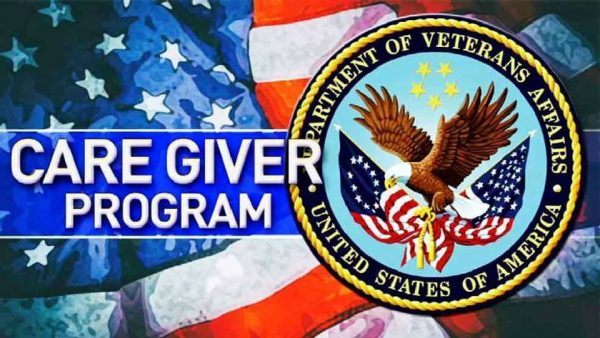The Senate recently joined the House of Representatives in passing legislation that would reform the Department of Veterans Affairs to improve patient care for our nation’s veterans. The VA MISSION Act of 2018, or VA Maintaining Internal Systems and Strengthening Integrated Outside Networks Act of 2018, proposes many changes to the VA.
The VA MISSION Act of 2018 passed in the Senate with a 92-5 bipartisan vote in favor of the legislation. The bill will now go to President Trump’s desk to be signed into law. The President is expected to sign the bill. The legislation was sponsored by Representative David P. Roe (R-TN). Congressman Roe, a physician who served in the United States Army Medical Corps, is now the Chairman of the House Committee on Veterans’ Affairs.
Great news! The #VAMISSIONAct was just passed by the Senate. The VA Mission Act, championed by @SenatorIsakson, will give veterans the quality health care they deserve. pic.twitter.com/NJopRTGyYg
— Senate Republicans (@SenateGOP) May 23, 2018
Focus on Patient Care
The main changes center on improving patient care. The Resolution aims “to establish a permanent community care program for veterans,” as well as make recommendations and improvements for the existing VA infrastructure. One of the key improvements is the ability for veterans to seek outside care when “the covered veteran and the covered veteran’s referring clinician agree that furnishing care and services through a non-Department entity or provider would be in the best medical interest of the covered veteran.”
The conditions that would make outside care necessary include a lack of medically-required care available within the VA. These factors include excessive distance, the type or frequency of care needed, environmental factors that would create an unusual burden, or other compelling reasons as determined by the approving authority.
Other conditions allow for authorization of non-Department providers. Those include when timely care is not available at a certain facility and if the quality of care is not up to standards. The inclusion of non-Department providers is to “promote the provision of high-quality and high-value hospital care, medical services, and extended care services.” To further improve patient care, the VA will use a “tiered provider network of eligible providers.” Providers in each tier will not be prioritized “in a manner that limits the choice of a covered veteran in selecting a health care provider.”
Caring for the Caregivers
The existing VA Caregiver Support program is currently open to post-9/11 veterans and their caregivers. The VA Mission Act of 2018 will expand the program designed to help caregivers, to include Vietnam veterans as well.
The expansion of the program means that veterans who had a “serious injury (including traumatic brain injury, psychological trauma, or other mental disorder) incurred or aggravated in the line of duty in the active military, naval, or air service” during the Vietnam-era as well post-9/11 will be able to use caregiver services. Now the caregivers of veterans who experienced these injuries on or before May 7, 1975 will be covered.

To be eligible, the veteran must need help to perform routine, daily activities. Services provided include financial support, increased access to insurance, mental heath services, training, and respite care.
Maintaining Funding for Veterans
The bill also funds the Veteran’s Choice program, which Acting Department of Veterans Affairs Secretary Robert Wilkie said would need funding as early as the end of May. The Veterans Choice program allows those currently served through the VA the chance to seek outside care from another provider under similar circumstances that will be covered under the VA Mission Act, once signed into law. Funding will be limited to one year following the legislation of the VA Mission Act. While the Veterans Choice program will be sunset, it will be replaced with more comprehensive plans to allow for patient choice.
Reviewing Procedures in the VA
An “independent commission to be known as the ‘Asset and Infrastructure Review Commission’” will also be established to review the existing VA. President Trump will be responsible for appointing nine members to the commission, who will be confirmed by the Senate by May of 2021. The commission will meet in 2022 and 2023 to conduct a review and make recommendations “for modernizations and realignments of facilities of the Veterans Health Administration.” Following approval of the commission’s findings by the President and Congress, the Department will begin to plan to implement and fund their recommendations.
Putting Veterans First
One of President Trump’s loudest campaign slogans was “Make America Great Again.” He focused on care for both veterans and those currently serving. When he signs the VA Mission Act of 2018 into law, the President will be following through on campaign promises he made to improve how we care for our veterans.
I’m very proud that this afternoon, the Senate will pass the #VAMISSIONAct as the final piece in the mosaic we started two years ago to fix the veterans healthcare system. pic.twitter.com/DMLO6Yd0sk
— Senate VA Republicans (@SVACGOP) May 23, 2018
“Passing this legislation is another promise made and promise kept to America’s Veterans under President Trump’s leadership, which has provided the most substantial VA reform in a generation,” said Press Secretary Sarah Sanders. The legislation has the support of over 35 Veterans’ organizations. They collectively sent a letter of support to leadership in the House and Senate Veterans’ Affairs Committees. “As leaders of the nation’s veterans and military service organizations, we thank you for your steadfast leadership in crafting this important bipartisan bill and call on all members of Congress to seize this historic opportunity to improve the lives of veterans, their families and caregivers by swiftly passing the ‘VA MISSION Act of 2018,’” the letter stated.
Supporters of the VA MISSION Act of 2018 include the Veterans of Foreign Wars, Disabled American Veterans, Wounded Warrior Project, and organizations representing each of the armed services.
